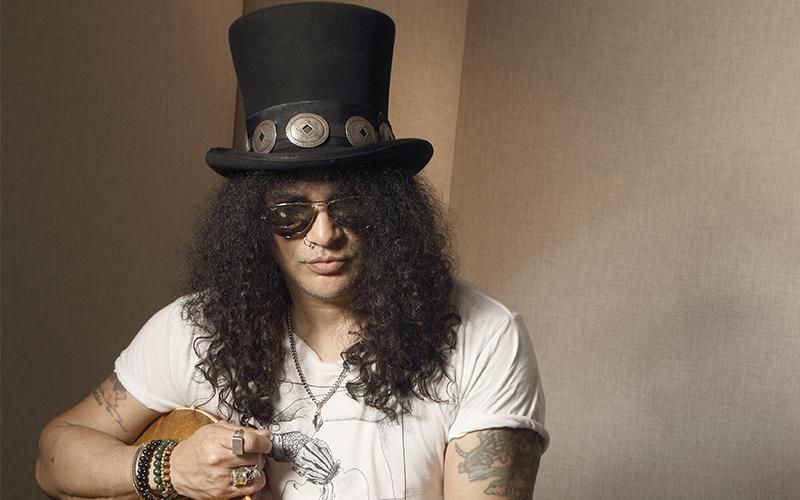Indiana has produced a number of famous musicians: Michael Jackson, Crystal Gayle, Axl Rose, and John Hiatt among them.
But John Mellencamp is one of those few Hoosier musicians who maintained Indiana ties after fame arrived. Mellencamp still lives in southern Indiana about 45 miles from where he grew up in Seymour.
“I have to come here; I just feel at home,” he told CBS Sunday Morning’s Jane Pauley last July. “I mean, I can be away for a long time and come back here and kind of decompress and then: boom!”
The boom he references here is, presumably, akin to liftoff after a thorough recharge of the fuel tanks.
Mellencamp doesn’t do many interviews these days. He told Pauley that he is all talked out.
“I have talked about myself for 40 years,” he said. “And I’m just not that interesting.”
This is just as well. Mellencamp’s music does all the talking for him.
A cougar in the tank
Mellencamp first came to prominence as a radio-friendly roots rocker named John Cougar. He has since become one of the most important musical chroniclers of blue-collar life and hardscrabble existence in these United States.
Mellecamp insists that he really hasn’t changed all that much. It’s the music business that has changed.
“(D)uring the ’80s and the ’70s, you know, the songs and the arrangements of the songs had to be a certain way to get on the radio, and it really screwed up songs,” he told Fresh Air’s Terry Gross. “I’ve been writing about this stuff forever.”
Mellencamp said he has essentially rewritten the same four songs “50 times.”
“(I)’ve got four topics that I cover,” he said. “You know, I cover race, and I cover what you’re calling mortality, and then I, you know, sometimes write about girls. But I’m too old to write about that now. So you know, I’ve only got a few things I write about.”
Mellencamp’s best songs come to him in a flash.
“(I)f I have to labor over the song, generally the song is not very good,” he said. “My best songs are just given to me from someplace outside myself. And I think it’s because I have thought about a particular topic for so long that eventually, it assembles itself in my head or in heaven, one of the two, sometimes in hell, and they just kind of come to me all in a thought.”
The whole World is his inspiration
As he has gotten older, Mellencamp has learned to cast the widest possible net for creative inspiration.
“Well, you know, as I’ve matured as a songwriter, I realize that if it’s out there, it’s mine,” he said. “You know, everything I see and hear, I don’t care if Shakespeare wrote it, or Tennessee Williams wrote it, or if Bob Dylan wrote it, or I see it on a sitcom. If I hear words, they’re mine. And so I will take ideas from anyplace, anywhere, anytime, and life has become a song to me. I’m always looking for a song.”
Mellencamp cites Dylan as his main muse.
“Well, I mean he was the ultimate song writer,” he said. “You know, I never even considered writing songs until I was much older, because I was the singer in a rock band. You know, I was in a bar… . I was one of those guys, you know, playing and singing and there was no reason for me to write a song because there were so many beautiful songs out… . Bob Dylan was always (the) ultimate song writer and nobody could ever write a song as good as him and nobody ever has written a song as good as him.”
‘Life goes on’
Mellencamp said he was forced to write his own songs because he got a record deal.
At 25, Mellencamp wrote the line, “Life goes on long after the thrill of living is gone,” for the song “Jack and Diane.”
He admits that he probably didn’t know much at that age about the meaning of those words, but they proved prophetic.
“(F)or me it was very helpful because, I don’t know about you, but I want to do something every day,” he said. “I want to learn something every day. I want to make something every day. If I go for a day and don’t make anything, I feel guilty about it.”
Mellencamp told The Today Show’s Harry Smith that he lives “the artist’s life.”
“Every day I have to make something,” he said. “I need to paint. I write… . Art is not being on the radio. That’s the most common denominator. If you look at my songs that were hits, and I had a lot of them, they really weren’t that good as far as songs go.”
At 67, this heart attack survivor and unrepentant smoker admits that he does think about mortality.
“I can see the finish line from here,” he said. “I only have so many summers left. And I intend not to waste them being old.”
 Submit Your Event
Submit Your Event




